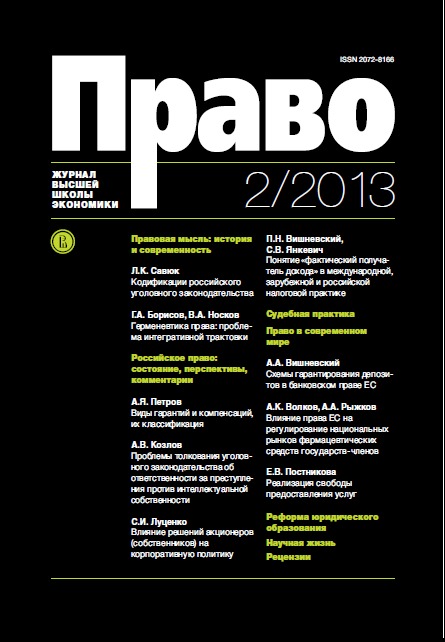EU Law Influence on Regulating National Pharmaceutical Markets in EU Member States
Abstract
The article features the influence of EU law on regulating national pharmaceutical markets of the member states. Having studied the problem, the authors raise a question whether it is possible to recognize the existence of the internal pharmaceutical market in the EU. The brief description of this market has allowed concluding that this is a special sector of the EU single market with its features of legal regulation. First, legal regulation of this branch is affected and limited by national legislations. The validity of the limitations is explained by ‘protection of public health’. The border between national and supranational regulation remains blurred. The EU court has regularly expressed its position but no single approach or criteria have been selected. Second, though the internal pharmaceutical market has not been created, the influence of the EU law is serious and it will increase in the future. Hence, the competence of national legislations on pharmacy will gradually shrink. As has been shown, the EU member has a competence as to admitting pharmaceutical drugs, but this competence works only if the EU’s single procedure is not applicable. Hence, pharmaceutical market and protection of citizens’ health have ceased to be the internal concern of states. Third, it is of note that states though try to set up a single market opening national markets for foreign pharmaceutical companies, which results in a intensive development of own internal industry at the expense of competition; on the other hand every state protects its producers and consumers with the help of barriers. Despite the necessity to eliminate protectionism, the desire to get fast profits and fear of losing national pharmaceutical industry remains significant.
Copyright (c) 2013 Law Journal of the Higher School of Economics

This work is licensed under a Creative Commons Attribution-ShareAlike 4.0 International License.


















